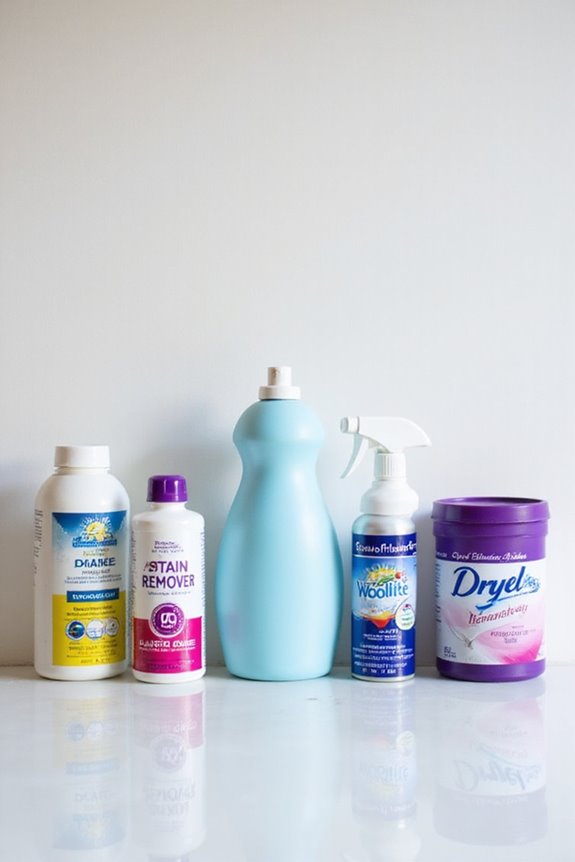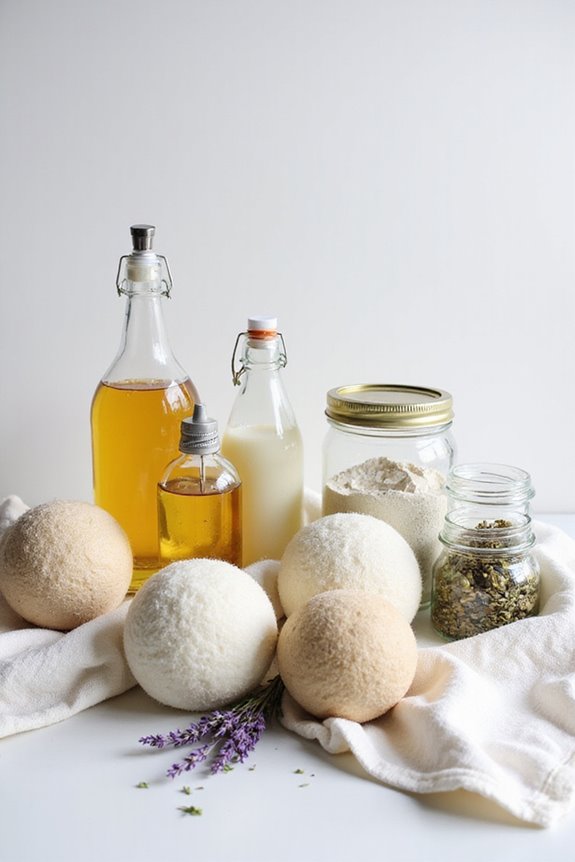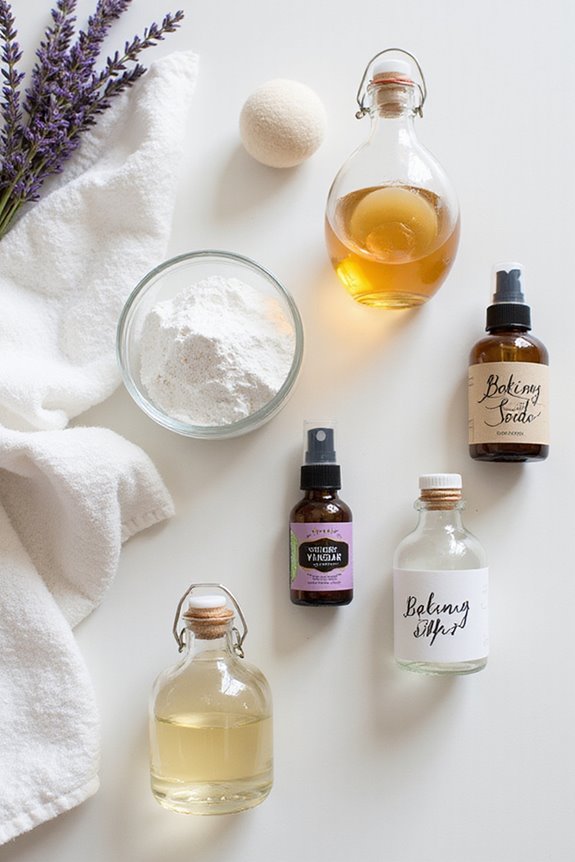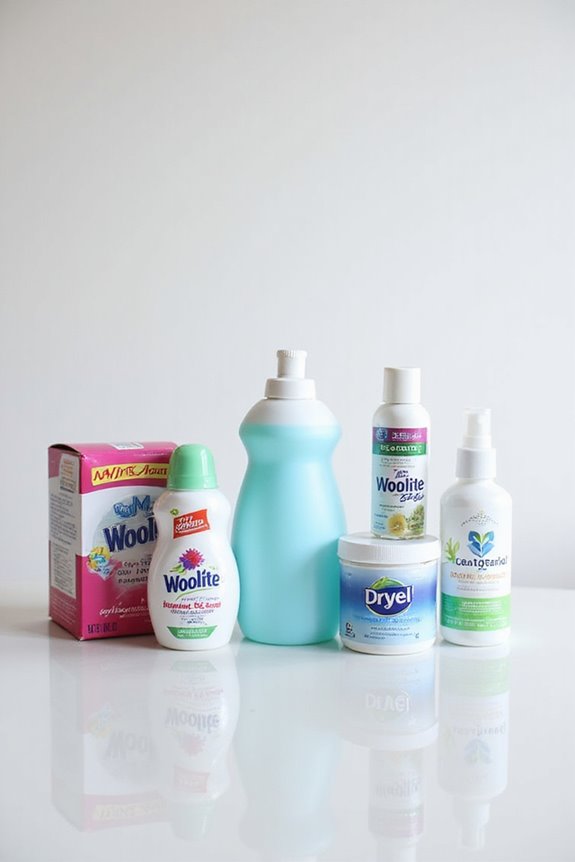Yes, fabric softeners can help reduce wrinkles! They work by coating the fibers of our clothes with a thin, slippery layer. This reduces friction during washing and drying, making it less likely for wrinkles to form. We’ve noticed that using fabric softener consistently can even improve the feel of our garments. Just remember to sort clothes and use the right amount during the rinse cycle for best results. Want to know more tips on keeping clothes wrinkle-free?
Key Takeaways
- Fabric softeners penetrate fibers deeply, improving texture and reducing wrinkles during the wash cycle.
- The lubricating film created by fabric softeners helps reduce friction, which can contribute to fewer wrinkles.
- Unlike dryer sheets, fabric softeners maintain garment shape better, which aids in wrinkle prevention.
- However, excessive use of fabric softeners can lead to residue build-up, potentially dulling the fabric’s appearance.
- For maximum wrinkle reduction, use fabric softener in the rinse cycle and promptly remove clothes from the dryer.
Understanding the Mechanisms of Fabric Softeners
When we think about fabric softeners, it’s easy to overlook the science behind them, but understanding how they work can really help us appreciate their benefits. Fabric softeners primarily contain cationic surfactants, which have a positive charge. This allows them to bind to the negatively charged fiber surfaces through electrostatic attraction. As the surfactants coat the fibers, they create a thin lubricating film that reduces friction. This makes our clothes feel smoother and softer. Plus, by neutralizing static, they help keep our clothes from clinging together. We’ve all experienced that annoying crackle when we pull on a sweater, haven’t we? With fabric softeners, those moments become a lot less frequent, letting us enjoy our laundry day a bit more! Additionally, using hypoallergenic formulations can ensure that sensitive skin is protected while still enjoying these benefits.
Comparing Fabric Softeners and Dryer Sheets
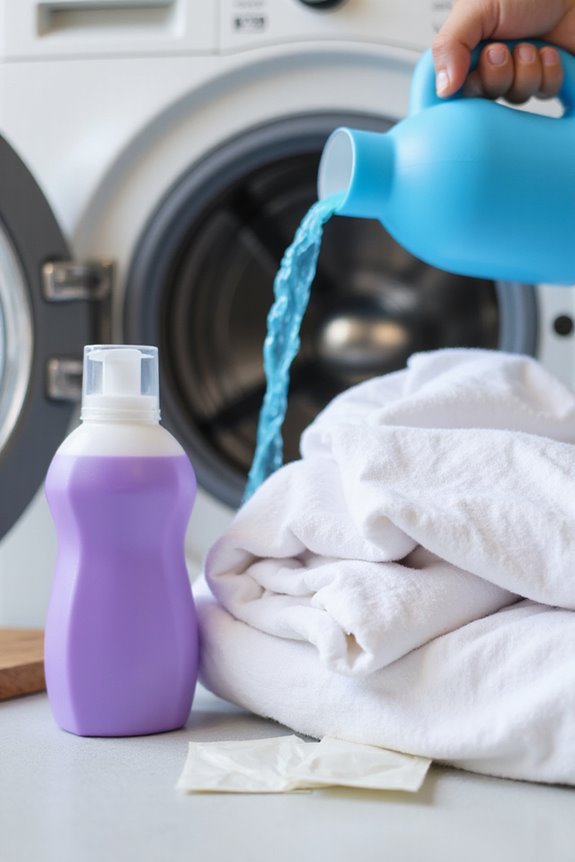
Fabric softeners and dryer sheets both promise to make our laundry feel softer and fresher, but they do it in different ways. Fabric softeners, added during the wash, penetrate fibers deeply. They offer fabric softener benefits like improved texture and wrinkle reduction. On the other hand, dryer sheets provide convenience. Just toss one into the dryer, and you’re all set! However, they mainly soften clothes superficially while also reducing static cling.
We’ve noticed that fabric softeners can maintain garment shape better than dryer sheets. But, we’ve also seen dryer sheets leave a waxy residue over time. So, when deciding between the two, think about your laundry needs and preferences—after all, we all want soft, fresh clothes without extra fuss! Additionally, the effectiveness of Downy fabric softeners in reducing wrinkles and static cling can make them a superior choice for those looking to enhance their laundry experience.
Impact on Fabric Integrity and Appearance
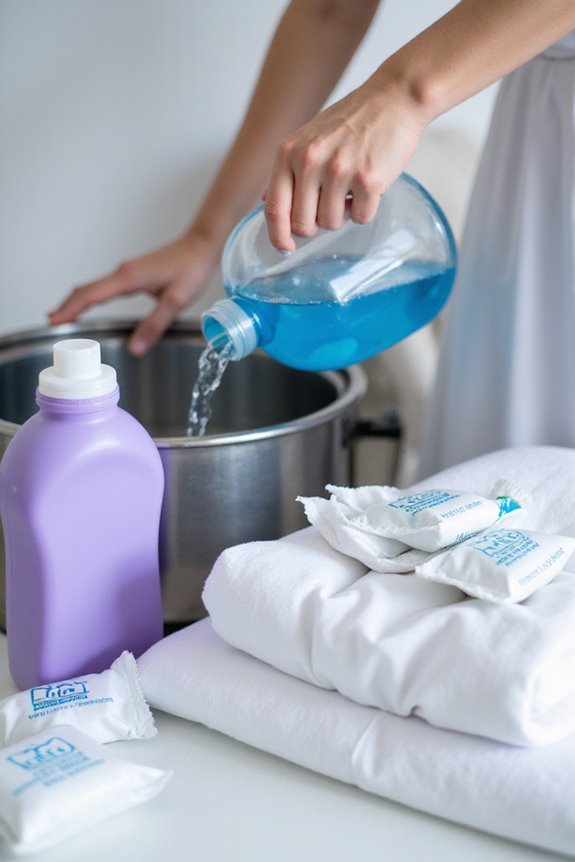
While we all love the feeling of freshly laundered clothes, it’s important to contemplate how fabric softeners can impact the integrity and appearance of our favorite garments. Over time, we might notice residue accumulation from fabric softeners, which can dull the look of our clothes. This build-up makes fabrics less breathable and absorbent, especially with towels and activewear. We’ve all experienced that moment when a towel just won’t dry us off, and it’s usually because of this residue. Furthermore, frequent use can weaken fabric durability, creating weak spots and leading to faster wear and tear. So, while fabric softeners might make our clothes feel softer, we should consider the long-term effects on their performance and appearance before reaching for that bottle. Additionally, some fabric softeners contain eco-friendly ingredients that can mitigate negative impacts on fabric integrity.
Environmental Considerations and Alternatives
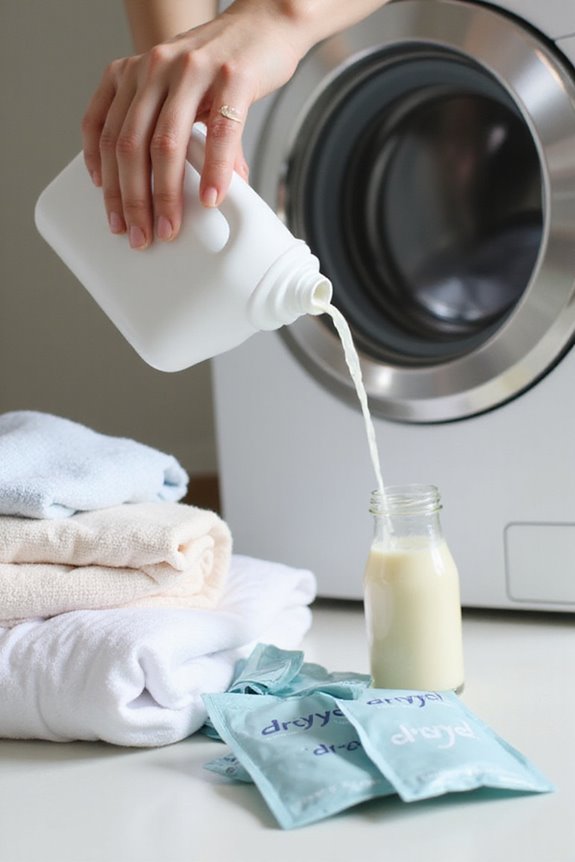
As we think about the impact of fabric softeners on our clothes, it’s also worth considering how these products affect the environment. Many fabric softeners are made from petroleum-based ingredients, which are non-biodegradable and contribute to pollution. This isn’t great news for our planet!
However, there are sustainable alternatives and eco-friendly options available. We can explore natural fabric softeners made from plant-based ingredients. These options are kinder to both our clothes and the Earth. Additionally, using hypoallergenic formulations can help minimize skin irritation while being eco-friendly.
You might even try using white vinegar in the rinse cycle; it softens fabrics without harsh chemicals. By choosing greener products, we not only protect our health but also help reduce the environmental footprint of our laundry habits. Let’s make better choices together!
Practical Application for Maximum Wrinkle Reduction
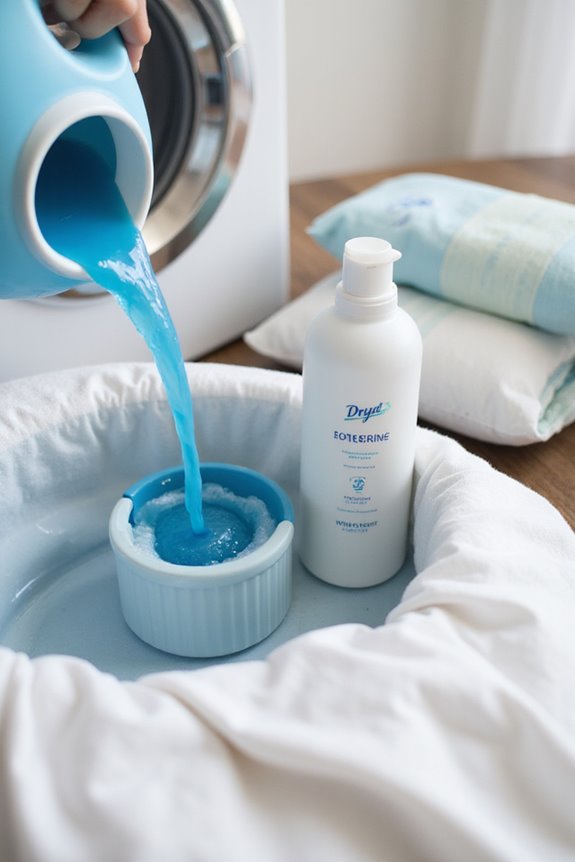
When it comes to tackling wrinkles, we can take a few simple steps to make our laundry routine more effective. First, let’s sort our clothes into small loads. This guarantees even distribution of our fabric softener. For maximum impact, we should add it during the rinse cycle using a full dosing cap, especially with products like Downy WrinkleGuard. Remember, not all fabrics appreciate softeners—avoid using them on activewear or flame-resistant materials. After drying, let’s promptly remove clothes to prevent wrinkles from setting in. For those stubborn wrinkles, stretching and hanging garments can work wonders. By mastering these usage techniques and understanding fabric compatibility, we’ll be well on our way to smoother, wrinkle-free laundry days. Additionally, using fabric softeners can help reduce static cling which is crucial for maintaining a polished look.
Frequently Asked Questions
Can Fabric Softeners Be Used on All Types of Fabrics?
As we sift through our laundry, let’s remember that not all fabric types welcome softeners. Following fabric care guidelines guarantees that we preserve the beauty of our clothes while enjoying their softness and longevity.
How Often Should I Use Fabric Softener for Best Results?
When considering fabric softener frequency, we recommend using it every 2-3 washes for ideal usage on soft fabrics. By being selective, we can enhance softness while maintaining fabric integrity and avoiding buildup.
Do Fabric Softeners Expire or Lose Effectiveness Over Time?
Like a fleeting summer breeze, fabric softeners can lose their charm. Their effectiveness duration typically wanes after a year, revealing expiration indicators like faded scent and rough texture. Let’s keep an eye on those signs!
Will Fabric Softeners Affect the Absorbency of Towels?
When we consider towel absorbency, fabric softeners can hinder performance by leaving a coating that reduces how much water towels can soak up. For ideal fabric care, we should avoid using softeners on our towels.
Can I Mix Different Brands of Fabric Softener Together?
When mixing different brands of fabric softener, we should consider brand compatibility and mixing ratios. Starting with small amounts helps guarantee our fabrics remain fresh and soft without any unwanted residue or unpleasant scents.

